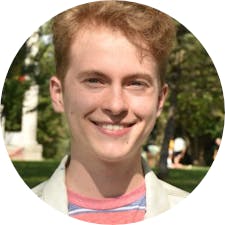Nadine Strossen, a former president of the American Civil Liberties Union (ALCU), gave a talk titled “HATE: Why We Should Resist It with Free Speech, Not Censorship” in Bicentennial Hall on Jan. 28 as part of the Critical Conversations series. The lecture included a response from Professor Erik Bleich, chair of the Political Science department, who offered a perspective on the topic that contrasted with the one Strossen provided.
Strossen spoke about the historical importance of free speech for civil rights movements and the rights of minority groups.
“I have seen through experience,” Strossen said, “that equality and liberty are mutually reinforcing, that we cannot have meaningful freedom of speech unless all of us are equally able to and encourage to contribute our voices to the discussion.”
“I thought it was interesting when she talked about how often, minorities are the groups who are negatively affected by censorship laws they were originally meant to protect,” said Maya Saterson ’22.
Strossen and Bleich also explored issues of hate speech and the unintended consequences of laws designed to censor it. They discussed situations in which anti-hate speech laws have had varying levels of success in reducing discriminatory acts.
“Not surprisingly, the social media companies and other online entities have been enforcing their anti-hate speech laws completely as subjectively as governments have been doing, with disproportionate adverse impacts on advocates of human rights, including racial minorities,” Strossen said.
“It turns out that when hate speech cases get to the Supreme Court in France… they are very much more likely to restrict speech that targets minorities, and very much less likely to restrict speech that targets majorities,” Bleich said. “So, the assumption that it’s commonly turned against minorities, well I would say its wrong, it’s statistically wrong.”
“I found it interesting when the speakers referred to countries in Europe and their policies in regard to censoring, like in Germany after WWII,” Evelyn Lane ’23 said.
Both during the lecture and in the following question and answer session, Strossen touched on Charles Murray’s invitation to campus. She expressed hope that it will be a positive experience for the exercise of free speech.
“I was happy to read the letter that was published by the students who had invited Charles Murray, and it seemed to me that they were stating a spirit of openness to protest, welcoming discussion, consulting with other members on campus about this event in a way that didn’t happen the last time he came here,” Strossen said.
She also offered thoughts on how people can use free speech to oppose hateful speech.
“Think about this: hate speech itself is only words, and we know that those words can be extremely harmful… We protect words precisely because they are so powerful, and that power can do an infinite amount of good as well as an infinite amount of harm.”
Jim Ralph, dean for faculty development and research, curates The Critical Conversations series, and several other organizations sponsor the lectures. The Alexander Hamilton Forum sponsored this lecture.
“I hope that the full array of events featured by Critical Conversations reveals that there are many important topics that deserve robust discussion,” Ralph said. “As for the specific events on Race and Racism, I hope that they will attract large numbers of members of our community and engender meaningful engagement with the perspectives of renowned and thoughtful presenters.”
The next speaker in the series is Nikole Hannah-Jones, creator of the New York Times’s “The 1619 Project” and host of the podcast “1619.” Her lecture is sponsored by the Office of the President, MCAB and the Black Studies program, and will take place in Wilson Hall at 7:00 PM on Feb. 25.

Tony Sjodin ’23 is a managing editor.
He previously served as community council correspondent, senior writer, news editor and senior news editor.
Sjodin is majoring in political science with a focus on international and comparative politics. He previously held internships with the Appalachian Mountain Club's Outdoor Magazine, political campaigns in Massachusetts and Vermont, and the U.S. Embassy in Costa Rica's Environmental Hub. Outside of class, he leads kayaking and hiking trips with the Middlebury Mountain Club.



